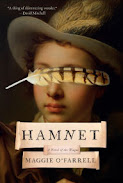From the Greensboro News And Record, author Nancy Mclaughlin
Darren Shell
didn't decide to write a book about suicide after his father and best friend
took their lives. It was after being awakened by a voice shortly after 3 a.m.
one morning, years later. "It's a
higher power ... telling me to get up and write," recalled Shell, 49.
The losses had
been devastating. Ed Shell, just 59, shot himself in 2006 — two days after
holding his son's newborn daughter. For Darren,
the sermon at church the following Sunday seemed to address his hesitation. He
didn't decide to write the book as much as he was pushed in that direction it
seemed.
"I went
into this with a blind promise that there is at least one person who needs to
read it," Shell said. This is his
story of taking two of the worst days of his life and making the decision to
not let it define him but work to prevent suicide. On Sept. 29,
the 14th anniversary of his father's suicide, Shell's book, "Three Seventeen: A Suicide Loss Survivor's
Story," officially goes on sale.
Released
during Suicide Prevention Month, the book tells the story of Shell's struggle,
survival and recovery. People
contemplating suicide might not think anyone will care or that they will be
missed, Shell said. They're wrong. Suicide always leaves survivors. "I've not
sat in an empty church yet," Shell said.
Before
starting on the book, Shell spoke to his mother and his best friend's wife,
mother and sister about what he planned to do. "I said,
'I need y'all to be OK with this," Shell recalled.
Suicide claims
the lives of at least 132 people a day in this country. But research shows that
for each of them, their deaths affect scores of other people. According to
experts, those struggling are often too ashamed to admit they have suicidal
thoughts and might only offer a hint at what they are feeling — if at all.
The April day
in 2014 he hung himself, the Rev. Robert McKeehan — a High Point pastor,
husband and father — got up and went to the gym. Afterwards, he posted a
humorous account on Facebook. His death made
national headlines. As did the
suicide that same year of a young man who posted "suffering is
optional" on social media before jumping off the downtown Marriott parking
deck.
Shell's father
had been Darren's hero for as long as he could remember. Well, him and Major
League Baseball pitcher Nolan Ryan. Shell always spotted his father in the
stands at his baseball games, despite the elder Shell working two jobs to pay
his son's way through school. Before his
death, Ed Shell had health problems related to a battle with non-Hodgkin's
lymphoma, and he carried baggage from his childhood. His mood lifted, but it
didn't stop him from taking his life.
In the months
after his father died, Darren threw himself into helping his mother and being a
husband and father. He later
sought therapy and learned how to better deal with his emotions. "You only
learn to accept it," Shell said of the grief. "It never goes
away." As he
struggled to understand what happened, Shell was caught in a cycle of shock,
anger and immense pain. The "what-ifs" haunted him. "Did he
not think what (his suicide) was going to do to Mom and me?" he said.
"I was surprised at how mad I was." Overwhelming
guilt followed. He had been on
the phone with his dad hours before and would repeatedly relive their
conversation, trying to find any indication that his father was planning to
take his life. "You
spend a lot of time trying to figure out what you could have done
different," Shell said.
And then his friend
was gone, too. When Shell
started writing the book, he didn't spend his time delving into the
"whys" of what happened in either case. "I don't
know what happened," Shell said of the deaths. "And it wasn't fair
for me to add anything to that. You spend months or years trying to find an
answer and the person who can provide the answer isn't here."
Shell's book
is self-published, so he has taken on a larger amount of the risk that anyone
will pick it up. A friend took
photos and another friend served as editor — which Shell said was a
monumental task because even his sixth-grade teacher will remember how horrible
of a speller he can be. The COVID-19
pandemic has doomed all the fall book festivals Shell was hoping to attend. "I wanted
it to be more than my mother and three people buying the book," he said.
A friend
pushed him to set up a website for the book when Shell was happy just to get it
on Amazon. "He was
like, 'No, you are going to get lost in the crowd,'" Shell said. He's already
looked into dropping off a few free copies at local libraries. Co-workers
have been supportive.
"I did
what I was supposed to do," Shell said.














